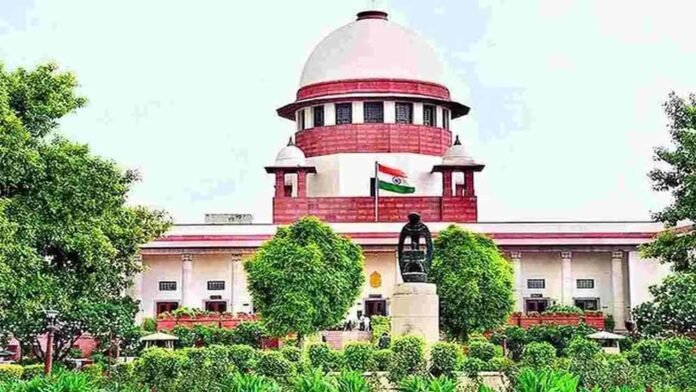The Supreme Court on Friday agreed to examine a challenge to the constitutional validity of sedition law, seen as the successor to the colonial-era law, under 2023 Bharatiya Nyaya Sanhita.
A bench comprising Chief Justice B R Gavai and Justices K Vinod Chandran and N V Anjaria issued a notice to the Centre on the PIL filed by retired Major General S G Vombatkere, an Army veteran and Vishisht Seva Medal awardee, against the validity of Section 152 (sedition) of BNS.
The top court also ordered tagging of the plea with a pending petition which challenges Section 124A (sedition) under the erstwhile IPC, replaced by BNS.
Section 152 of BNS deals with the “act endangering sovereignty, unity and integrity of India”.
“Whoever, purposely or knowingly, by words, either spoken or written, or by signs, or by visible representation, or by electronic communication or by use of financial means, or otherwise, excites or attempts to excite, secession or armed rebellion or subversive activities, or encourages feelings of separatist activities or endangers sovereignty or unity and integrity of India; or indulges in or commits any such act shall be punished with imprisonment for life or with imprisonment which may extend to seven years, and shall also be liable to fine,” it reads.
The plea called the provision a “rebranded version” of the sedition law, previously kept in abeyance by the Supreme Court in July 2022 pending legislative review.
Despite this, the new legislation reinstates sedition under a new label, with even broader and more ambiguous language, it added.
In July 2022, a three judge bench headed by former CJI N V Ramana stayed the sedition provision under IPC.
The plea said the BNS provision was violative of Articles 14 (right to equality), 19(1)(a) (freedom of speech and expression) and 21 (right to life) of the Constitution.
“The impugned provision, in effect, reintroduces the colonial sedition law previously codified as Section 124A of the IPC, 1860, under a new nomenclature. Though the language is altered, its substantive content — criminalising vague and broad categories of speech and expression such as ‘subversive activity’, ‘encouragement of separatist feelings’ and acts ‘endangering unity or integrity of India’ — remains the same or is even more expansive,” it added.
The provision, the plea said, was liable to be struck down as it violates the principles of clarity, necessity, and proportionality under Article 19(2), fails the test of due process under Article 21, and permits arbitrary State action, thus offending Article 14 of the Constitution.
“It threatens democratic discourse and the right to dissent, and thus cannot be permitted to remain on the statute book,” it claimed.
The provision was stated to criminalise a conduct carried out “by words, either spoken or written, or by signs, or by visible representation, or by electronic communication or by use of financial means, or otherwise”.
“Section 152 criminalises acts done ‘purposely or knowingly’, yet neither term is defined in the BNS. While ‘purposely’ may suggest a specific intent, ‘knowingly’ is a broader term that encompasses conduct where the accused may only have foreseen the consequence, regardless of intent,” it said.
SC asks Centre to respondto PIL on BNS sedition law
NEW DELHI, AUG 8 (PTI)

